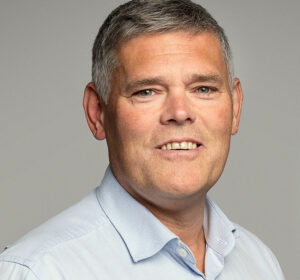SalMar operational profits up 49% after acquisitions

SalMar, the world’s second largest producer of Atlantic salmon, today announced a first quarter operational profit (EBIT) of NOK 1,884 million (£140m), up by 49% year on year.
SalMar’s Q1 EBIT for 2022 was 1,262 (£95m). The results reflect a year in which SalMar acquired the NTS group, owners of Norway Royal Salmon.
The company also said that financial results from Scottish Sea Farms, in which it owns a half share, had improved from the final three months of 2022, with a positive operational EBIT of NOK 9m (£678,000) in Q1 compared with a negative EBIT of NOK 128m (£9.6m) in the last quarter of 2022.
The Scottish side of the business (also known as Norskott Havbruk) had still produced an accounting loss before tax, however, and the harvest figure was down.
SalMar, said the strong start to 2023 was down to limited supply growth of Atlantic salmon in the market and record high prices “combined with a strong demand for healthy and nutritious food”.
However, SalMar’s CEO Frode Arntsen pointed out that there were other factors that were more decisive when assessing the company’s results and position along with the potential for further growth.
He explained: “In the midst of a time of great political uncertainty, our employees have done an exemplary job of combining the businesses of SalMar, NTS, NRS and SalmoNor, as well as realizing the synergy opportunities.
“We have delivered well operationally throughout our business, in farming as well as in Sales and Industry, in Iceland and in Scotland. This shows the quality and commitment of the many people who work for our company.”
He added: “Together we are building a solid platform for the further development of safe workplaces and value creation along the coast. Our goal is for our efforts to benefit the many communities in which we operate, our employees and their families, as well as our owners.”
Like the rest of the aquaculture industry, SalMar said it viewed the proposal for a new ground rent tax in Norway with great concern.
The Storting (Norwegian Parliament) faced a near tripling of the marginal tax on a competitive district industry from 22 to 57%, based on a complicated new tax model, with retroactive effect and without impact assessment.
“No other country has introduced anything close to this on any part of its food production, including seafood,” the statement added.
Looking ahead, SalMar said it expects that the increase in the global production of Atlantic salmon in 2023 will be limited as in 2022.
It is keeping the harvest volume for 2023 unchanged. Slaughter volume in Norway is expected to be 243,000 tonnes, for Iceland 16,000 tonnes and for Scotland 37,000 tonnes.
As previously indicated, Scottish Sea Farms, which was hit by biological issues last year, produced a lower first quarter harvest of 5,200 tonnes against 7,800 tonnes in Q1 2022.
Operating revenues fell from NOK 639m (£47m) last year to NOK 506m (£37.4m) this time.
The operational EBIT from SSF dropped sharply from NOK 105m (£7.7m) last year to NOK 9m (£660,000) in Q1 this year.
SalMar’s share of SSF accounted for a loss of NOK 17m (£1.25m).
Low operating results and negative fair value adjustments contributed to the loss in the quarter. The volume guidance for 2023 is kept unchanged at 37,000 tonnes.

Frode Arntsen, CEO SalMar

